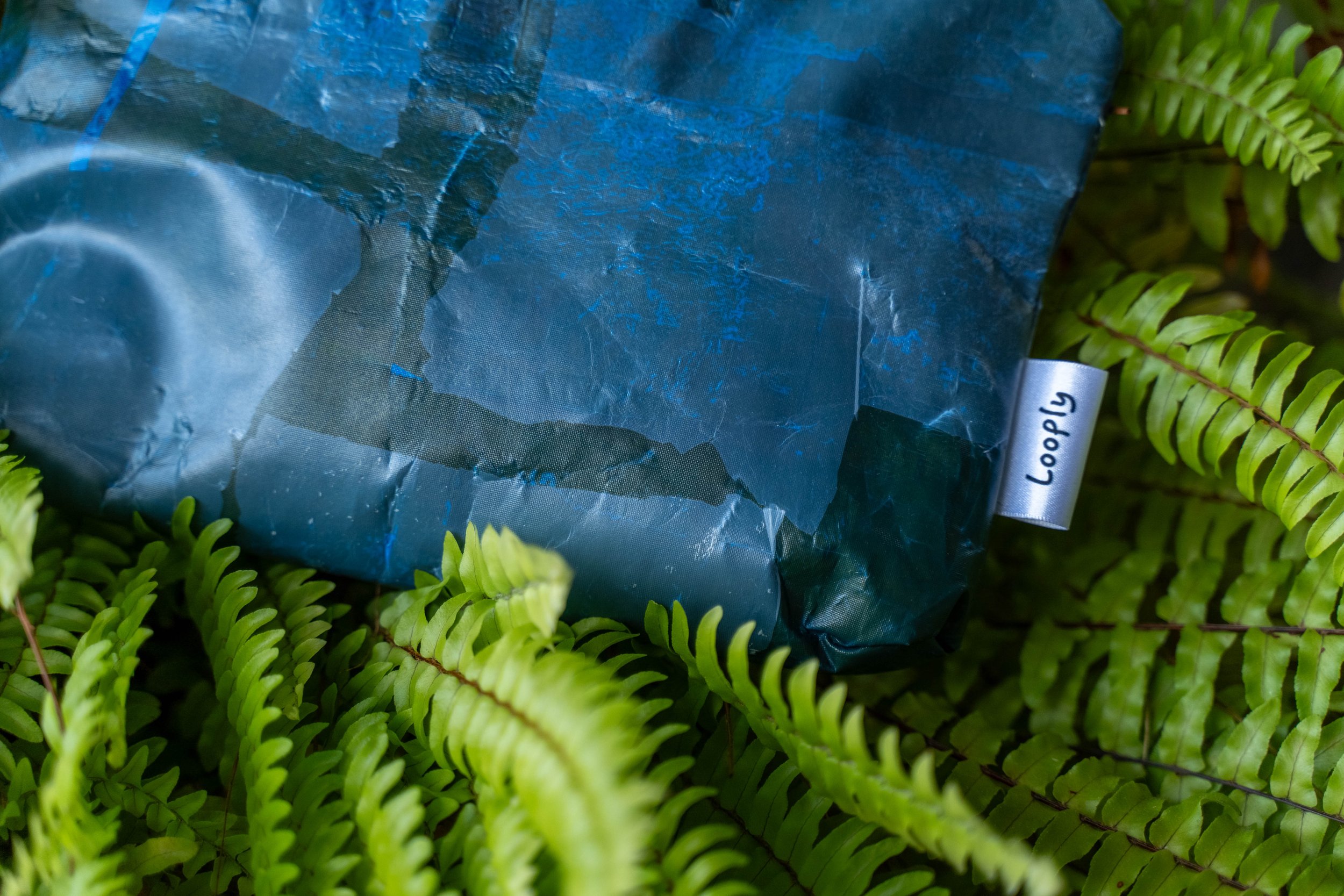Introducing Looply: open sourcing creative reuse of plastic
“Essentially, we collect the kind of soft plastics that normally end up in the bin, the ones that can't even be recycled, and turn them into reusable products,” says multidisciplinary designer, maker, art director and founder of Looply, Fyona Seguin.
She’s been proactively rethinking society’s plastic crisis after becoming deeply frustrated with the slow pace of change towards a waste issue that’s growing by the hour.
A grim 430,000 separate pieces of plastic are chucked in the bin monthly across the UK, with 85% of these being soft plastics – things like the weekly Hovis bread bags or the packaging your latest online purchase most likely arrived wrapped in – that we don’t even attempt to recycle.
“Although people see milk bottles and caps as ‘widely recycled’, we all – hopefully – are aware by now that recycling is not the answer to anything,” says Fyona. “A very low percentage of that material ever makes it that far anyway, something like 90% of it is being thrown into landfill or being incinerated.”
The Looply model aims not only to divert waste, but also to build circular systems within large businesses. So the Looply team will offer a workshop to staff, and encourage participants to start collecting plastics beforehand via a strategically place bin.
In the workshops, the community then create things like bags, pouches, laptop cases. “We can even do like plant pots and stuff, so all kinds of daily, reusable items.”
It’s a micro-level solution to the reuse of unrecyclable resources, but Fyona believes in a hyper-local approach to enacting impactful change.
“I'm a local resident, and I couldn't think of a better area to pilot this in the businesses around here in Hackney Wick. It's quite progressive compared to other communities, which is helpful, and there's just a great support system. People are genuinely really interested in projects like this.
“Long term, I’d love to see it grow enough for us to open in other communities. Everything we do is about trying to make our methods as accessible as possible. We even print DIY cards showing you how to make the products at home without any tools.”
With a growing online presence and shop, the word is indeed spreading. HWFI locals have two plastic collection points, a public one at Refill Therapy, and one for businesses at The Loop, where the project has found an ideal first home.
“The Loop is the same kind of blueprint for how you might set up small scale circular businesses in many different areas,” says Fyona. It’s a space that allows her the flexibility to experiment with the Looply model, without massive unobtainable overheads or commitments.
“We started this because of a frustration about the lack of legal enforcement on waste management and bans and single use products,” she says. “I think, if you want sustainable long-term change, it has to come from the bottom up, because you need to genuinely be changing behaviors, changing the way people think about things, and that requires you to act locally in small but purposeful ways every day.”



